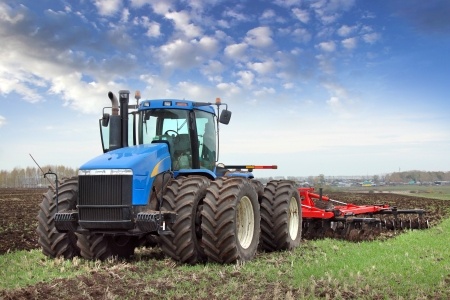Application Exercise 8i: Foreign control of Australian agricultural assets

- Create a table to summarise the arguments presented in favour of and against foreign ownership / holding of Australian agricultural land.
Arguments in favour of foreign ownership/ holding of Aust. Agricultural land | Arguments against foreign ownership/ holding of Aust. Agricultural land |
Could compromise the country’s future food security. Rising global population plus extreme weather events from climate change has reduced productivity of agricultural land globally. Foreign owners may choose to divert output of food to their own country. | Australia produces more food than it consumes. We produce enough to feed 40 million people plus our population. |
An increasing number of government-backed overseas entities are buying up prime Australian farmland. | Foreign investment has long been integral to Australia’s economy. It contributes to economic growth. It creates jobs. |
About 11% of Australian water is foreign owned – and could be at risk as potable (drinkable) water becomes scarcer. | The Australian government maintains the right to impose restrictions on how land is used, or who can buy Australian agricultural land, through the Foreign Investment Review Board. |
90% of Australia’s fresh food is produced in Australia, and Australia ranks third in the global index of food affordability. |
- Describe what has happened to the proportion of Australian agricultural land that is foreign held between the 2015 and the release of the most recent data. Use data to support your response.
In 2015, 13.6% of Australia’s possible agricultural land was foreign owned. As at June 2021, it is now 14.05%. There has been an increase, albeit a relatively small one.
- Using the data in Tables A and B, calculate the percentage of Australia’s foreign landholding that is held by each of the following countries to complete the final column of Table B:
- The United States
- Bahamas
- China
Table B: Top 5 foreign holders of Australia’s agricultural land by area | ||
Country | Million hectares (ha) owned | % of Australian agricultural land held |
China | 8.5 | 2.25% (8.5/377.002 x 100) |
United Kingdom | 8.2 | 2.17% |
United States | 2.9 | 0.77% |
Netherlands | 2.8 | 0.74% |
Canada | 2.4 | 0.64% |
Bahamas | 2.2 | 0.58% |
- Explain if there was anything in the details of foreign ownership of Australian agricultural land that was unexpected or that surprised you. In your response, provide
This will be dependent on student responses.
- Define the term
A consortium is usually a group of several companies (or potential owners) that come together for a common purpose e.g. buying another company.
- Explain the significance of the Kidman & Co cattle leases in the context of the Australian
Kidman & Co. cattle leases represent the world’s largest cattle farm. The total land holding of the company was 11 million hectares – which is one of the largest non-state (non-country) landholdings on the planet. It was one of the largest beef producers in the country.
- The Treasurer, Scott Morrison, has stated that foreign investment in Australia must be ‘in the national interest’. Explain what you believe this means, and why this may have led him to block the sale of Kidman & Co to Chinese interests in early 2016.
Something being in the national interest means it fits in with the security, political, economic and cultural interests (and often the values) of Australia. If something is in Australia’s national interest it could mean it benefits Australians on average (or the country overall) and will lead to improved living standards (either material or non-material) in Australia. There may have been concerns that selling such a large amount of Australia’s land holding to foreign owners could go against Australia’s economic interest (see table in answer to question 1 for some arguments against foreign ownership of Australia agricultural land.)
- According to The Weekly Times newspaper, there was great ‘consternation’ about foreign ownership, particularly Chinese ownership, of Australian agricultural Can you identify any reasons for the particular concern over Chinese ownership of agricultural land?
Students may note that China has been perceived as increasingly active in the South China Sea and other regions around Australia in terms of asserting its military authority over this area. In addition, China is a one-party state (which is not a democracy) which can be autocratic and authoritarian by Western standards.
